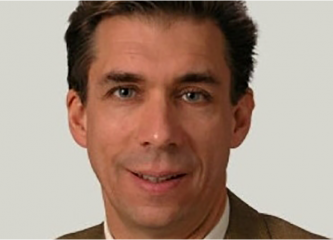

Albina Y. Surbis Professor, Department of Neurology
Dr. Christopher Gomez has worked in the field of neurogenetic disorders, including the hereditary spinocerebellar ataxias (SCAs), for more than 25 years. His long-term goals are to help characterize the pathogenic mechanisms that cause ataxia, to identify disease and stage-specific biomarkers of ataxia, and to develop and test specific treatments for ataxia. The efforts of Dr. Gomez and his team to develop a uniform clinical assessment of SCAs have positioned them to provide the first culturally and linguistically neutral clinical assessment of ataxia for use in global populations. In 2018, Dr. Gomez joined the SCAGlobal group with the aim of coordinating international efforts around the identification of the various SCAs in regionally distinct groups and facilitating access to people willing to participate in clinical trials. In the same year he co-founded the Pan-American Hereditary Ataxia Network (PAHAN) in the US, Cuba, Mexico, and Brazil with the goal of working together to develop a common clinical assessment language and culturally sensitive outcome measures for better coordination across data collection sites. The group held its inaugural meeting in Havana, Cuba in March 2019.
Q: Why is international collaboration important in your field?
A: Despite the certainty of genetic diagnosis, SCAs are extremely rare disorders compared to other neurodegenerative diseases. For this reason, international collaboration is necessary to reach a sufficient number of patients for clinical trials and global cooperation across regions is necessary to adequately develop treatments and assess meaningful outcomes across cultural barriers. Finally, due predominantly to the vagaries of human migration, different subtypes of SCAs are well known to be clustered within genetic populations, making communication between regions especially important in developing therapies and uniform assessments and diagnoses.
Q: How has your work with international partners been beneficial to you personally?
A: My connections with the island of Cuba date back to my childhood when I left the island before the revolution. These were greatly expanded after I connected with the Cuban ataxia researchers at meetings in South America, leading to several trips to Cuba that served as the founding meetings for the PAHAN network.